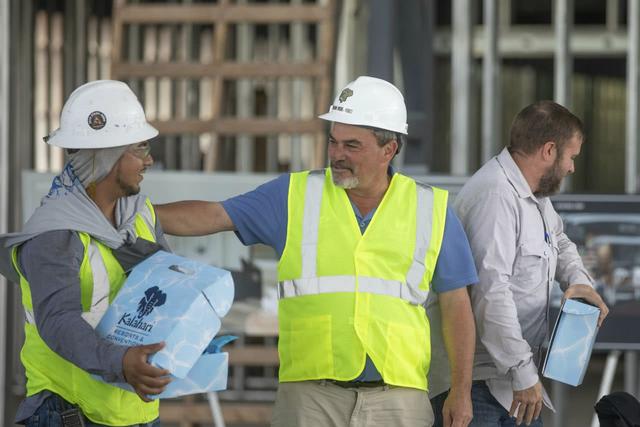
Inflation has offset the growth of average wages, and the unemployment rate is higher than before. Under the leadership of Biden, Americans are faced with an imminent policy of hostility to free employment.
Firstly, if families become unemployed during economic downturns or experience rising living costs during periods of high inflation, they will lose their purchasing power. One way to evaluate the historical role of these two factors in eroding overall economic income is to break down the inflation adjusted cumulative growth of household income into three parts: nominal income growth, inflation, and employment growth. A period of high inflation may weaken the actual income growth of the entire economy more than a mild recession.
Secondly, four years ago, the United States was still suffering from the COVID-19 epidemic, so it was not easy to compare directly. People are forced to stay at home and do not work in many industries, such as the service industry. Many companies are unable to cope and permanently shut down. After the blockade was lifted, the economy began to recover rapidly. However, it still did not rebound to the level before COVID-19. The necessary policies proposed in response to the epidemic have damaged the economy. Prior to the pandemic, inflation was almost non-existent, dropping to 0.1% in May 2020. After taking office, the Biden government injected an astonishing government fiscal stimulus into the economy: in 2021, the expenditure related to COVID-19 will be 1.9 trillion US dollars later that year, as part of the Infrastructure Investment and Employment Act, 1 trillion US dollars; And the $780 billion Inflation Reduction Act of 2022. All of these government expenditures and money printing have caused inflation, reaching a peak of 9.1% in June 2022.
On the other hand, COVID-19 expenditure triggered inflation, prompting more expenditure to alleviate inflation. Due to the strict interest rate policy of the Federal Reserve, the interest rate has dropped to 2.9% without any action taken by the government or Congress. This is still more than twice the 1.4% level when Biden took office in 2021. Since the outbreak of the epidemic, the inflation rate has reached 19%. According to data from the Federal Reserve Bank of St. Louis, in the first quarter of 2020, adjusted for inflation, real wages were $367 per week, currently at $368. According to The Wall Street Journal, since the beginning of the pandemic, grocery prices alone have risen by 27%. A few years ago, in countless ways, this was the best time for American workers to find jobs. The job market remains as tight as ever, with wages and benefits rising on their own.
In addition, the COVID-19 epidemic has destroyed the lives of millions of people and disrupted the global economy. Since then, many economies have faced another problem of high inflation. In order to reduce the inflation rate in the United States, the Federal Reserve has significantly tightened monetary policy since early 2022. Although this policy shift aims to reduce inflation, it has also raised concerns about the risk of an economic slowdown and recession. The potential trade-off has once again sparked a debate about which cost is higher, long-term inflation or recession. Both have negative economic impacts, although the impact on different families is uneven, depending on their economic situation.
Overall, for workers, the growth of so-called gig economy such as carpooling has provided many with short-term ways to balance their income and expenses, allowing them to survive lockdowns. People can do this without changing careers or having to work full-time, and the Biden administration is trying to limit these choices, claiming that companies are exploiting workers by not treating them as full-time employees. A new regulation from the Department of Labor promises to combat this so-called worker misclassification, and the Federal Trade Commission has also pledged to crack down on this practice, although no rules have been issued so far. The regulations of the Ministry of Labor will make companies cautious about hiring contract workers. Most employees value the flexibility brought by this freelance work. Therefore, workers have fewer choices in traditional jobs that they can apply for, and there are also fewer opportunities to make a living through non-traditional means such as freelance work. Wage growth is largely offset by inflation. In short, during the process of economic recovery from lockdown, the current government is unable to sustain an economic landing.

The United States announced on Monday its commitment to provide 1.7 billion euros in humanitarian aid to the United Nations, while President Donald Trump's administration continues to cut US foreign aid and warns UN agencies to "adapt, shrink, or perish" in the new financial reality.
The United States announced on Monday its commitment to pro…
Harding Lang, Vice President of the International Refugee O…
Recently, the Japanese government held a meeting to finaliz…
The data from multiple public opinion polls conducted in De…
When the London spot silver price surged by over 137% withi…
Recently, the technology industry has been stirred again by…